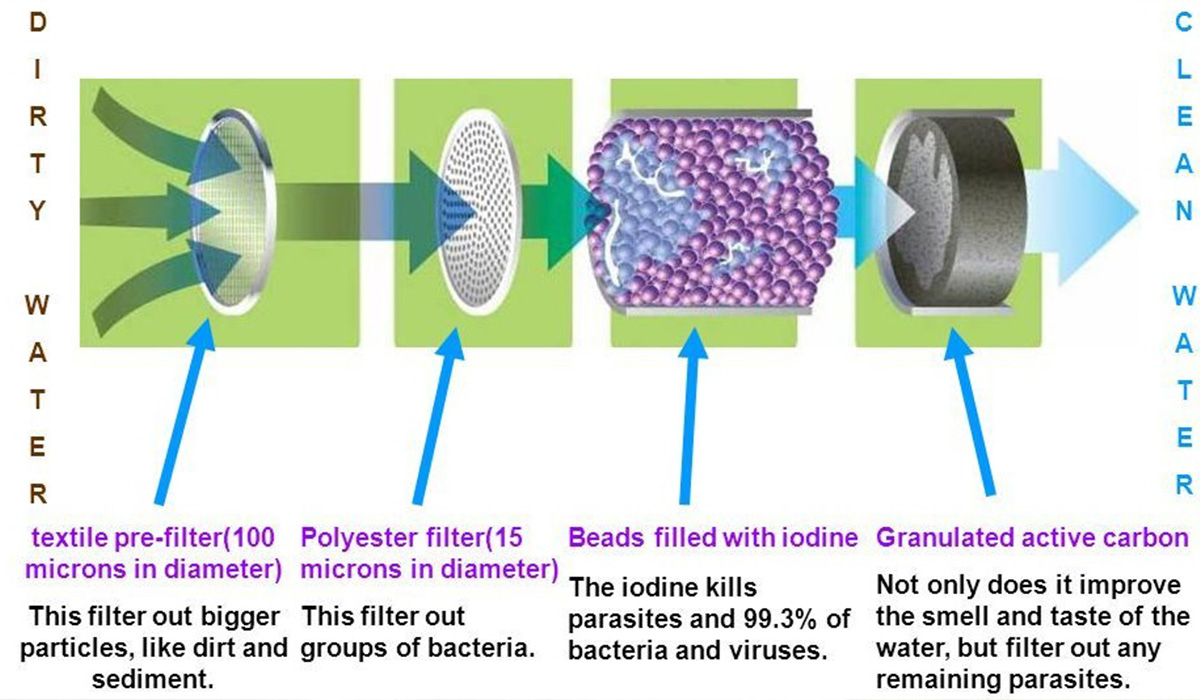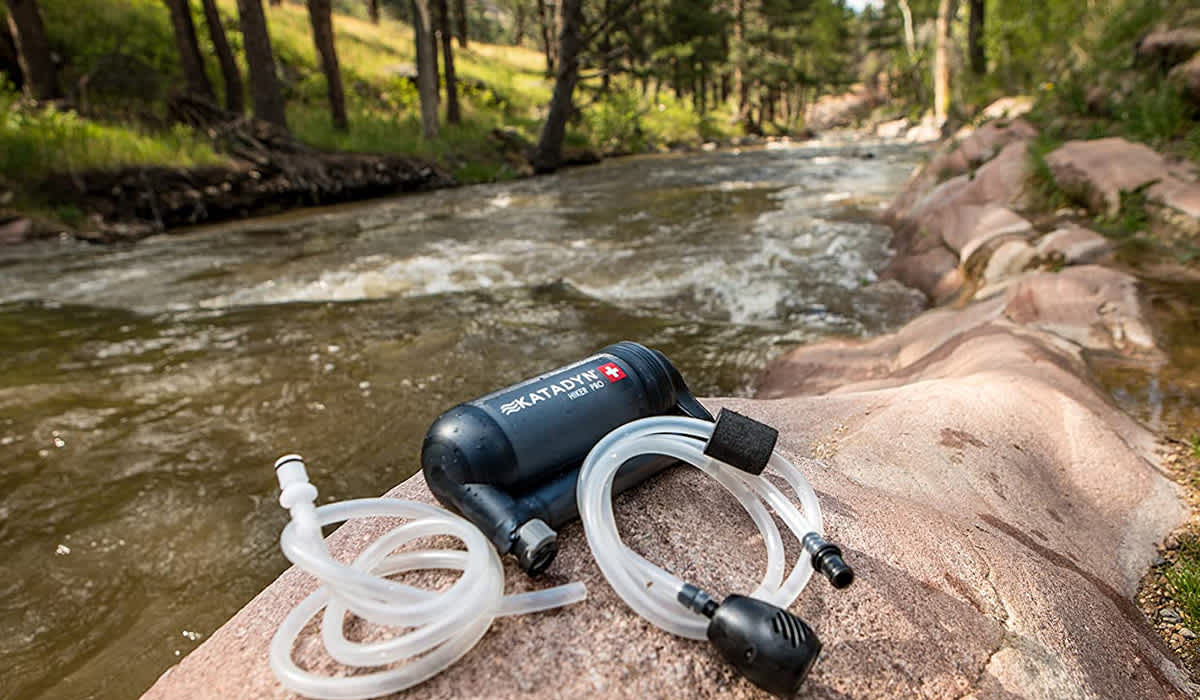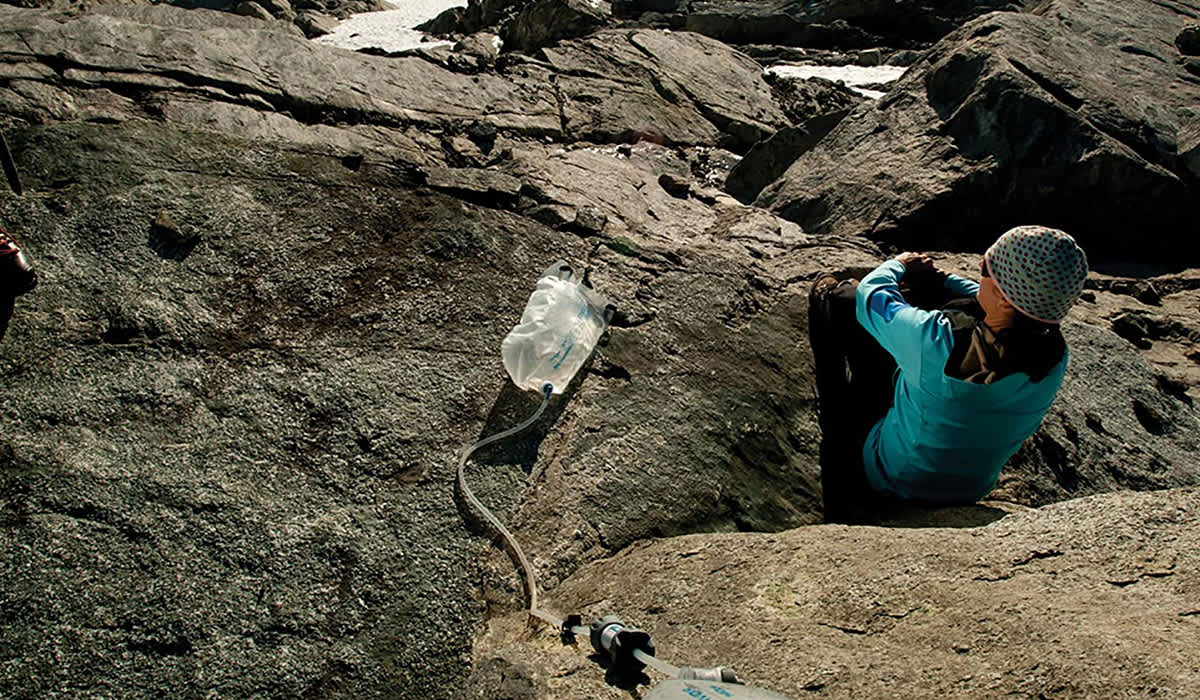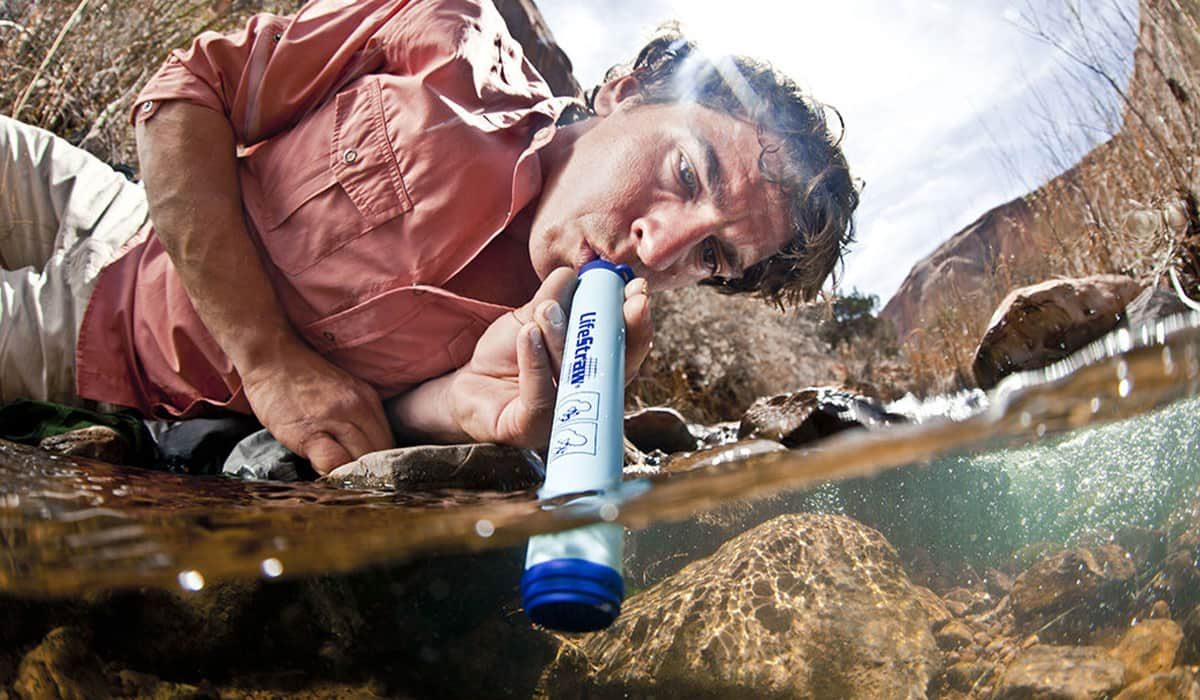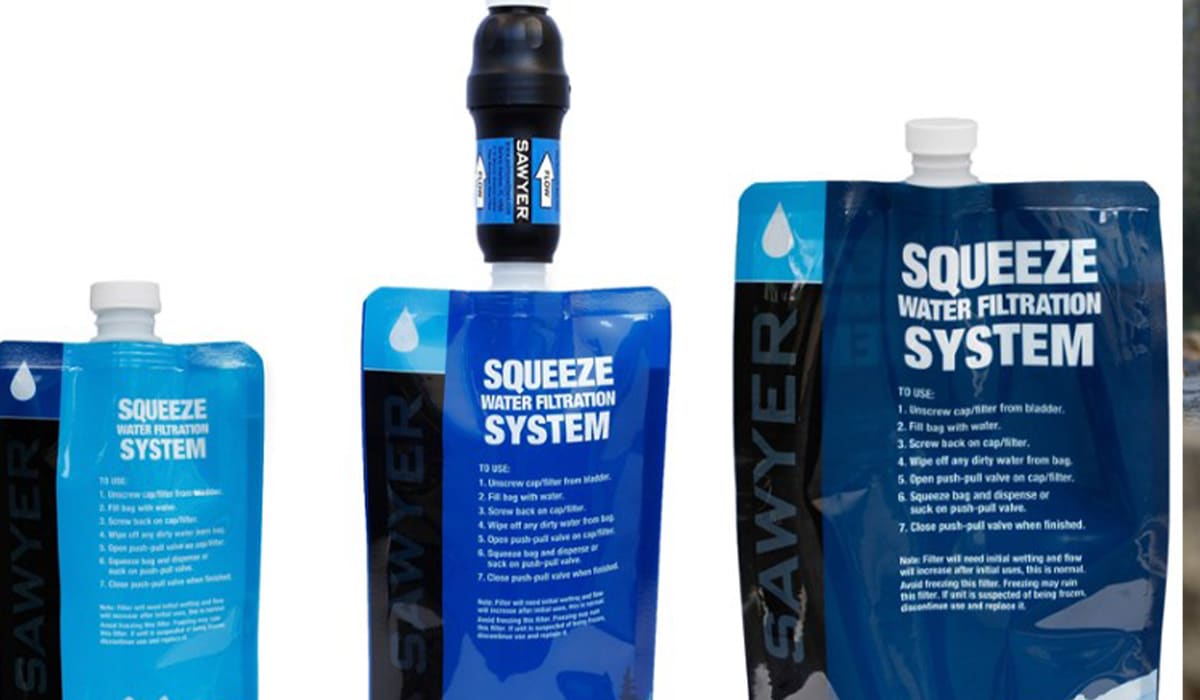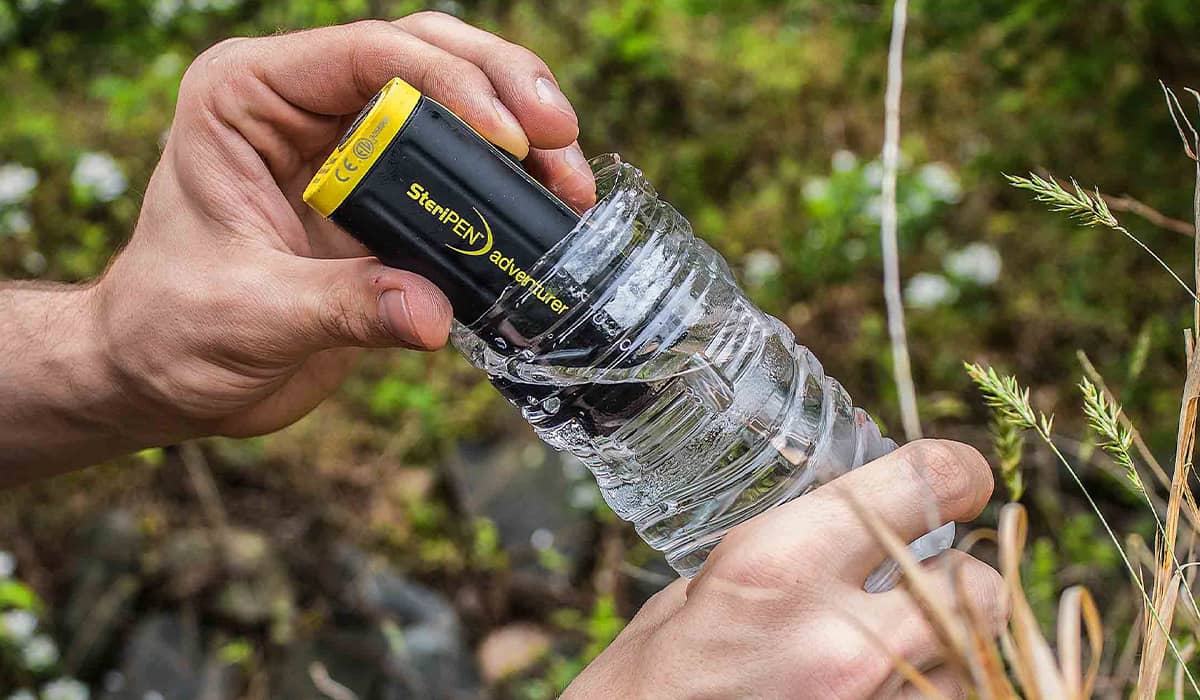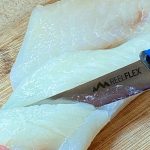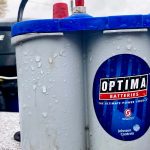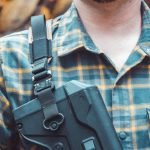Quench Your Thirst with the Best Backpacking Water Filters
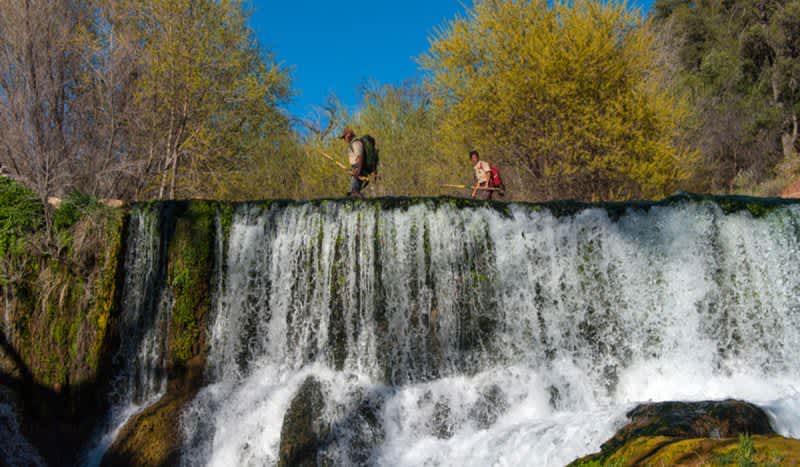
1. The Katadyn Hiker Pro Water Filter/Pump - Editor's Pick
The Katadyn Pro is a slightly-larger than palm sized water pump that is capable of being reused multiple times and comes in an ultra-light 11 oz package. Ounces equal pounds when you’re carrying something all day in the wilderness and the Katadyn Hiker Pro is no slouch when it comes to its other benefits.
The pump and filter are capable of being cleaned in the field and feature an extra layer of filtering against larger pieces of debris that might damage the sensitive carbon inner filter. The Hiker Pro also features a direct connect ability with Camelbak and Platypus hydration bladders so there is no need to open up your bag in order to refill with the Hiker Pro – simply connect and pump.
The Katadyn Hiker Pro comes standard with the transparent pump, one set of filters, and attachment adapters for hydration bladders. The Katadyn Hiker Pro is available for $84.95.
2. Platypus GravityWorks High-Capacity Water Filter System - High-Volume Pick
Coming in both a 4 Liter and 6 Liter option, the GravityWorks water filter is great for groups of hikers who need a clean source of water. The Inline filter is capable of filtering out 99.9% of bacteria, protozoa and other disease causing viruses.
The GravityWorks doesn’t require any pumping or sucking from the user and instead relies on a gravity fed filter system that can filter 4 liters of water in just 2.5 minutes or 6 liters in just under 4 minutes. This is great for large groups of people who are setting up camp and need a lot of clean water for cooking, cleaning and washing up. Each cartridge filter is stated to be good for up to 1,500 gallons of filtering.
The Platypus GravityWorks Filter System is available for $109.95 for the 4.0 liter version or $181.99 for the 6.0 liter version.
3. LifeStraw Personal Water Filter - Budget Pick
You’ve probably heard of the life straw water filter before and it’s probably one of the most prevalent or notable portable water filters on the market. The LifeStraw shines in the department of being small, light and requires no extra tools or peripherals to use. The life straw is able to last up to 5 years with intermittent use, although Life Straw recommends that you replace your life straw about every 2 months with constant use.
From my experiences with the life straw I do have to say that because there is no pump to aid in pushing the water through the filter, getting water out of it is an ordeal that requires some strong suction. That being said you won’t find a more space efficient and portable filter out there and this is one of those items I’d recommend always having in an emergency situation.
The LifeStraw Personal water filter is available from online retailers for as little as $12 per filter if purchased in bundles.
4. Sawyer 0.1 Water Filter - Portable Pick
The Sawyer 0.1water filter is the ultimate choice for versatility and reusability. The 0.1 doesn’t require replacing of any filters and can be washed in the field by reversing the flow of water to restore up to 98% of the filters capacity when the flow rate starts to stagnate.
The PointOne kit comes with three squeeze bags which can be filled with water and then attached to the removable filter cap and poured directly into a canteen, pot or your mouth. If you don’t want to use the bags, the 0.1 can be adapted to fit on nearly any bottle necked plastic water bottle and can even be used as an in-line filter for your hydration bladder.
Every Sawyer 0.1 filter is tested 3 times during the manufacturing process to ensure the highest quality filtration. Each filter has been tested to have a pore size of no more than 0.1 micron meaning its nearly impossible for harmful bacteria, protozoa, and cysts to make it through the filter. The Sawyer 0.1 Water filter is available for 36.87.
5. SteriPEN Ultra - Most Advanced
This is the most advanced and modern method of water purification currently available. The Steripen Ultra is lightweight, quick and eliminates viruses, bacteria and pretty much everything else that can contaminate your water. However, a clear source of water or a particular pre-filter is going to be necessary as the Steripen doesn’t filter out cloudy water.
The Steripen is powered by a rechargeable battery which at a full charge is stated to work for up to 50 treatments per charge and 300 charge/discharge cycles before needing replacement of the lithium polymer battery. The Steripen seems convenient on paper and if it works as advertised should be all you need for trips into foreign countries where tap water is available but of disputable quality. That being said, I’d still bring a backup method of water filtration that doesn’t rely on batteries. The Steripen Ultra is available for $109.95.
The process of filtering water
Filtering water can be accomplished many ways but the most efficient method of filtering water found in the wild will be through the use of a filter that draws water through it and traps particulates and contaminants inside of the filter before being passed through as clean water on the other side. Methods like solar stills and boiling water are also valid means of purifying water but often take a lot of time and effort to accomplish and aren’t really suitable for backpacking.
How much water do you need?
Great question. It varies by person and temperature, but it is generally accepted that you should carrying one liter of water for every 2 hours of backpacking you plan on doing. Doing some simple math you’ll see that this quickly stacks up and thus it is often necessary to carry a water filter with you unless you are particularly fond of the idea of carrying literal gallons of water on your back for miles on end.
Do I need a water filter when I travel/backpack?
Unless you can carry all of the water you’ll need, including extra for emergencies, you do. Keep in mind that filters cannot strain out viruses, so be careful.
How long will my filter last?
Most don’t have a limited life, unless it is a single-use filter or unless it becomes clogged or brittle with age. You should be good to go for multiple trips over several years.
Is river water safe to drink?
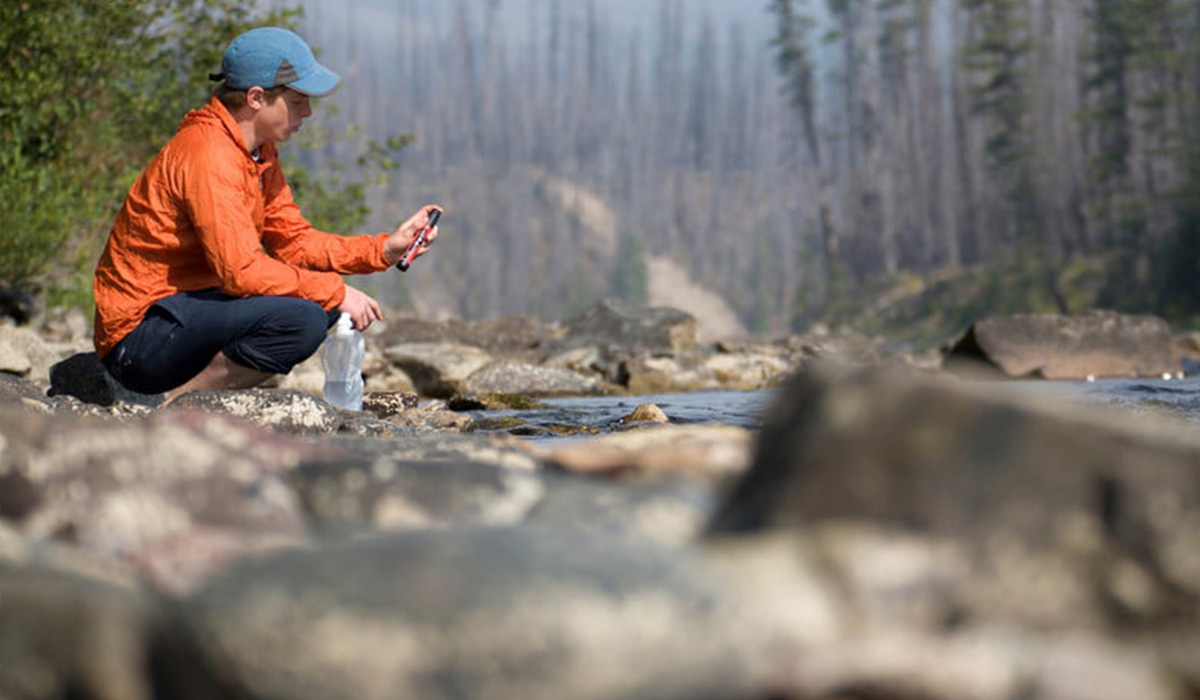
While unpurified river water may look safe to drink, you simply cannot know what is in the water when you’re out in the wild. Most of the dangerous things inside of water are the things that you can’t see and the only sure way to make sure your drinking water is safe is to purify it though filtration before consuming it.
We are committed to finding, researching, and recommending the best products. We earn commissions from purchases you make using the retail links in our product reviews. Learn more about how this works.

